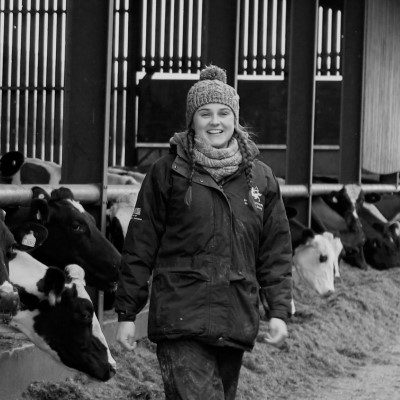CIEL | Blog: Looking to a Blue Transformation
Martin Sutcliffe

The 2022 edition of The State of World Fisheries and Aquaculture (SOFIA) launched at the UN Ocean Conference in Lisbon, Portugal, on 29 June.
This biennial publication is the flagship report of the FAO Fisheries and Aquaculture Division that analyses the status of global stocks as well as trends in fisheries and aquaculture at a global and regional level. As such, it is a critical reference for policy makers, researchers, and all involved in the fisheries and aquaculture sector.
CIEL Aquaculture Specialist Martin Sutcliffe considers key findings of the report and how science & innovation will support the forecasted growth of aquatic food production:
“Total fisheries and aquaculture production reached an all-time record of 214 million tonnes in 2020, comprising 178 million tonnes of aquatic animals and 36 million tonnes (wet weight) of algae. The continued increase in per-capita consumption of protein from aquatic sources (now over 20kg/per person/per annum), underlines the important role aquaculture will play in feeding a growing population, if it can do so in an environmentally, socially and economically sustainable way.
“Inevitably, with the environmental pressures on wild capture fisheries and the flat lining of production of protein from these sources since the mid-1990s, aquaculture continues to be the go-to source for sustainable aquatic protein.”
“With the sector predicted to continue its high growth rates there are ongoing environmental issues that must be considered, but, with careful planning and working alongside coastal communities around the globe, aquaculture can provide sustainable income and long-term employment. The report highlights more must be done in developing nations to ensure that aquaculture continues to have a place in communities but that those communities are not over exploited and working conditions are improved.
“The SOFIA report emphasises the need for “Blue Transformation” and the commitment from global leaders to make this happen. The UK Government has recognised the role that aquaculture can play in providing food security and the recently released Food Strategy for England at least notes the role that “fish farming” may have in the future. But aquaculture is much more than “fish farming” and to simplify aquaculture under the banner of “fish farming” is doing the diverse sector a huge disservice: Inshore English waters are home to one of the largest rope grown mussel farms in Europe; initiatives such as the Seaweed Academy at the Scottish Association for Marine Science (SAMS) are aiming to increase production of this important part of the sector; and pioneering companies such as FloGro and Noola Redclaw, amongst many others, are developing RAS production facilities for novel, high value species that could be sold directly to the towns and cities close to where they are grown. Plans are also being put in place to revive the native oyster industry.
“Upcoming reviews of regulatory frameworks in the UK will no doubt be welcomed by stakeholders and will hopefully lead to increased production levels across the industry. But it should also be remembered that not all aquaculture is destined for human consumption. Development of the circular economy and new novel products from aqua-cultured produce will also play an important role in developing the sector in the UK. High value pharmaceutical and nutraceutical derivatives from farmed seaweeds in UK waters could improve animal health & welfare and utilising by-products from finfish and shellfish processing can help minimise the environmental impact of sector expansion.”
“CIEL has several Members who work in aquaculture. As we increase engagement with stakeholders across the sector’s supply chain we intend to tap into that expertise to deliver meaningful research that can find innovative solutions to support production, improve animal health and limit the environmental footprint of aquaculture.
“There’s been a lot of press recently about the use of algae to potentially reduce methane emissions from cattle, and there are undoubtedly more, as yet untapped, opportunities from other areas of aquaculture. We can bring different sectors within food production together to help explore common issues and find common solutions.”
The FAO have produced a useful set of digital assets highlighting headline facts & figures to accompany the launch of this latest report that are worth exploring alongside the report.
As the link between industry and the research base, CIEL is well placed to help find innovative solutions to support production, improve animal health and limit the environmental footprint of aquaculture. Please contact us to find out more.

To find out more about our work, our projects and partnerships, choose a category from the list:








